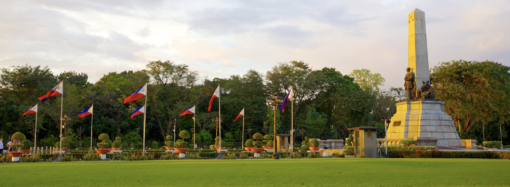This is the third part of the four-part series Empowering Vulnerable Populations through Media and Information Literacy. This article discusses how Media and Information Literacy (MIL) empowers Indigenous communities by addressing unique challenges and promoting cultural preservation and digital inclusion. As encouraged in previous articles, Media and Information Literacy should also be inclusive as much
This is the third part of the four-part series Empowering Vulnerable Populations through Media and Information Literacy. This article discusses how Media and Information Literacy (MIL) empowers
Indigenous communities by addressing unique challenges and promoting cultural preservation and digital inclusion.
As encouraged in previous articles, Media and Information Literacy should also be inclusive as much as possible. In a digital space where everyone can claim a web page, each voice deserves to be heard.
For this reason, this article will delve into indigenous people and the challenges and opportunities they face in the realms of the modern digital world.
Vulnerable Populations and the Digital Divide
Indigenous communities face unique challenges in terms of digital inclusion. They have difficulty accessing digital information. This challenge hinders their participation and amplifies the digital divide.
Moreover, they usually live in far-flung places where internet connectivity seems unavailable so aside from the problems of digital information access, they also have problems in digital infrastructure.
Another problem that they face is limited digital literacy due to socio-economic factors that hinder them from availing technology which could enable them to practice MIL.
Subconsciously, this may seem not a problem to them because they may not need them at all due to the culture and way of living they have. However, when the Indigenous community gains access to the digital world, they can further preserve their heritage and empower their communities.
MIL: A Powerful Tool for Indigenous Communities
MIL does not only ensure that a select few people reap the benefits of digital access. It also enables entire communities to thrive in the digital age.
As for the Indigenous populations, MIL offers a pathway to preserve their cultural heritage, promote their languages, and ensure their voices are heard in the media. Since they are deemed as vulnerable communities, they need connections to help them in every single way possible and that is what digital interconnection could offer.
However, this is easier said than done. There are some challenges that need to be addressed:
Key Challenges Faced by Indigenous Communities
• Digital Divide: They have limited access to the internet and digital devices. This stems from the fact that the community lacks the social capital to convince governments and other stakeholders to invest in their community whether it is basic commodities or more advanced policies.
• Cultural Barriers: The internet lacks culturally relevant content and resources that could penetrate their psyches. They are usually underserved and understudied. To resolve this issue, their way of life should be documented and uploaded via the internet so they could have a digital space library.
• Educational Gaps: They also suffer from lower levels of education and digital literacy due to the fact that they lack the social capital to convince stakeholders to invest in their communities.
Tailoring MIL Programs for Indigenous Communities
• Incorporate Indigenous Languages: Develop MIL resources in native languages.
• Cultural Sensitivity: Ensure programs reflect and respect Indigenous cultures.
• Community Involvement: Engage Indigenous leaders and members in development and implementation.
• Invest in Their Communities: They need financial investments in their basic necessities to more advanced commodities so the economic and digital divide would be minimized.
Conclusion
MIL is essential to empower Indigenous communities. It enhances their ability to navigate the digital world safely and responsibly. Tailored MIL programs that address their unique challenges are crucial for promoting cultural preservation, community engagement, and social inclusion. Investing in MIL initiatives for Indigenous communities is key to creating a more equitable and inclusive digital future for all.


















Leave a Comment
Your email address will not be published. Required fields are marked with *